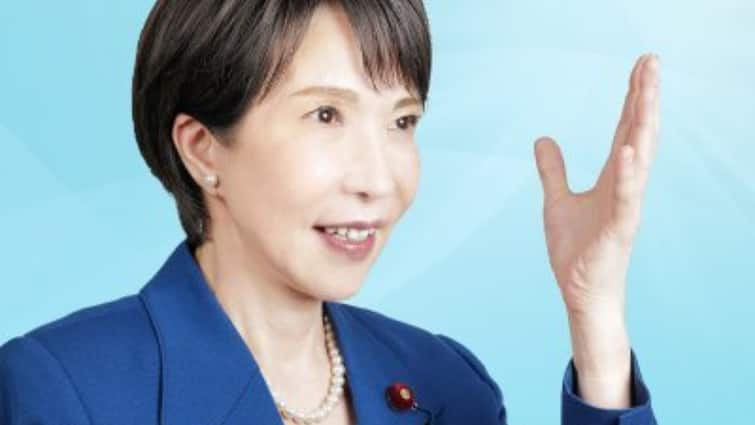Japanese parliament on Tuesday elected ultraconservative Sanae Takaichi as the country’s first female prime minister, marking a historic moment in Japanese politics.
Her appointment comes just a day after her struggling Liberal Democratic Party (LDP) forged a coalition agreement with a new right-wing partner, a move expected to shift the government further to the political right, Associated Press reported.
Takaichi, 64, succeeded Shigeru Ishiba, bringing an end to a three-month political impasse following the LDP’s devastating loss in the July elections. Ishiba, who served for just one year, resigned earlier in the day alongside his Cabinet, clearing the path for her ascent to power.
The LDP’s unexpected alliance with the Osaka-based Japan Innovation Party (JIP), also known as Ishin no Kai, ensured Takaichi’s election as prime minister. The opposition bloc remains fragmented, allowing her coalition to take power. However, her governing alliance still lacks a majority in both houses of Parliament, meaning Takaichi will need to court additional opposition groups to pass crucial legislation, a challenge that could destabilise her government early on.
“Political stability is essential right now,” Takaichi declared during Monday’s coalition signing ceremony with JIP leader and Osaka Governor Hirofumi Yoshimura. “Without stability, we cannot push measures for a strong economy or diplomacy.”
The coalition agreement emphasised shared nationalist and security-focused priorities, solidifying Takaichi’s reputation as a hawkish and ultraconservative leader. The sudden partnership came after the LDP ended its longstanding alliance with the Buddhist-backed Komeito Party, which had championed a more centrist and pacifist approach to governance. The breakup threatened to unseat the LDP, which has dominated Japanese politics almost continuously for decades.
Later in the day, Takaichi is expected to unveil a Cabinet featuring several loyalists of influential party figure Taro Aso and other senior lawmakers who supported her during the LDP leadership race. Yoshimura confirmed that the JIP would not take ministerial roles in her administration until the party feels assured of its partnership with the LDP, AP reported.
Takaichi Steps In Amid Economic Pressures And Diplomatic Hurdles
Takaichi steps into office with a packed agenda and pressing deadlines, including a major policy speech later this week, upcoming regional summits, and talks with US President Donald Trump. She is also under intense pressure to address Japan’s rising cost of living and present an economic relief package by December to calm growing public frustration.
Despite making history as Japan’s first woman to lead the government, Takaichi has shown little interest in promoting gender equality or diversity reforms. She has consistently opposed same-sex marriage, the use of separate surnames for married couples, and any changes to the imperial family’s male-only succession tradition.
A close political disciple of the late former Prime Minister Shinzo Abe, Takaichi is widely expected to carry forward his agenda, bolstering Japan’s defense capabilities, reviving economic growth, and pushing for constitutional revisions to expand the role of the military. Yet with limited parliamentary strength and waning public confidence, her ability to advance such policies remains uncertain.
Controversy Over Wartime Views And Cabinet Integrity
Komeito’s split from the LDP was driven in part by discontent over the party’s poor handling of slush fund scandals that contributed to its electoral defeats. It also voiced concern over Takaichi’s revisionist perspective on Japan’s wartime history, as well as her repeated visits to Yasukuni Shrine, a site that has drawn criticism from Beijing and Seoul as a symbol of Japan’s unrepentant past.
Although Takaichi has attempted to soften her rhetoric in recent days, controversy continues to shadow her political ascent. On Friday, she opted to send a religious ornament to Yasukuni instead of visiting the shrine in person, which is a symbolic gesture seen as an effort to ease tensions with Japan’s neighbors while staying true to her nationalist base.



